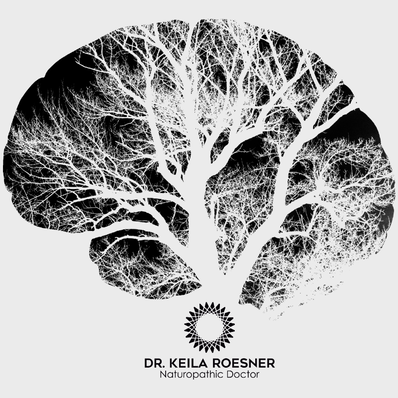 Should you be concerned about your cognitive health? Consider these facts:
Everyone experiences some moments of “brain fog” from time to time, whether they’re trying to find their keys or are struggling to remember a name. As we age, these little moments of forgetfulness become more worrying. And in fact, the damage from Alzheimer’s can start up to 10 years before symptoms become troublesome. But stress, fatigue, and nutritional deficiencies can all contribute to cognitive issues, even without Alzheimer’s. The good news is that foggy thinking and poor memory don’t have to be a normal part of aging. Cognitive decline is not inevitable. And the steps to protecting our brain health can also help the rest of our bodies - further evidence that everything is connected when it comes to our optimum health! So what can you do to maintain peak mental fitness? Here are some of my favorite high-impact strategies: Get enough sleep. A great deal of research supports a link between brain health and adequate sleep. Scientists think the relationship may work both ways: not getting enough sleep can lead to cognitive decline, but cognitive decline can also cause sleep problems. Either way, the best approach is to be proactive. For example, avoid substances like caffeine or alcohol before bed. Practice insomnia.htmlgood sleep hygiene by sleeping in a cool, quiet room and pay attention to when the body wants to sleep. Your circadian rhythm is your natural sleep cycle, which for many people means unwinding and falling asleep around 10-10:30 pm. Fighting it and staying up later sends an adrenaline rush to your body to keep it awake. Contact our office if sleep issues interfere with daily living. You may also find that following the other tips on this list help with sleep – did I mention that it’s all connected? Focus on a plant-based diet with plenty of healthy fats. Good nutrition fuels our brain. Processed, low-nutrient foods can lead to inflammation and oxidative stress. The result can be cognitive and mood issues. Up to 95 percent of the serotonin in our bodies is produced in our gut, so what we eat can have a profound impact on our emotions and the way we think. As a result, having adequate “good” bacteria in our gut can reduce the inflammation throughout our bodies, so it’s important to eat with this in mind. Some important nutrients for brain health include:
Move to keep your brain active. Exercise is a must when it comes to brain health. Not only can cardio activities like swimming and walking ease stress, but physical activity can also increase the size of the hippocampus. That’s the part of our brain responsible for verbal memory, among other important functions. Which exercise is best? The best activity is always the one you’re most likely to do, but experts say to strive for 75 minutes of intense activity or 150 minutes of moderate activity every week. As an added bonus, exercise earlier in the day can help you sleep! Keep learning. You’re never too old to learn something new. In fact, acquiring new knowledge can help keep your brain young. One study found that adults who learned a “complex skill” such as quilting or basic coding had improved memory function after only three months. And knowing a second language (even if you learn it late in life) can help slow memory loss. My favorite is practicing piano. Relax. You’ve probably noticed that when you’re stressed, your thought process isn’t as clear as it is when you’re relaxed. Scientists confirm that even short-term stress can affect the hippocampus. It’s important to note that most studies refer to a relationship between perceived stress and memory. We all have negative events in our lives and some of these can’t be avoided. But we can change how we react to them and how we deal with daily stress. It’s possible to reframe the stress of daily life and change how we perceive it. Yoga, meditation, tai chi, and cognitive therapy are all effective ways to reduce our feelings of stress. It’s important to remember that there isn’t necessarily a “magic bullet” solution to protect your brain function. As with all elements of well-being, maximum health is the result of a holistic approach. By taking conscious steps to protect your brain health, you can minimize memory loss. Proper brain function is also linked to hormonal balance. Having an imbalance of your cortisol levels, estrogen, melatonin, pregnenolone, testosterone or thyroid can all contribute to memory loss, confusion, and issues concentrating. Testing and treatment for imbalances can help get your brain working at peak function again. And if you’ve noticed any symptoms that worry you, it’s important to check them out right away. Please schedule a complimentary Health Discovery session with our office if you have questions about your brain health! We excel at assessing the key building blocks for brain health and helping you create an individualized plan to keep you feeling sharp. Sources:
2 Comments
|
Top 75 Naturopath Blogs & Websites For Naturopathic DoctorsAuthorDr. Keila Roesner is a Naturopathic Doctor. When not treating patients she is also an enthusiastic barefoot-strolling, music-loving, yoga-doing kitchen wiz - who also happens to be a wrestling fan. Categories
All
|
Let us take you from hormonal to whole.
|
Dr. Keila Roesner, BHSc ND
Naturopathic Doctor, Hormone Warrior and Your Wellness Cheerleader 247 Church Street, Stratford ON N5A 2R7 (519) 273-0900 [email protected] |
|




 RSS Feed
RSS Feed